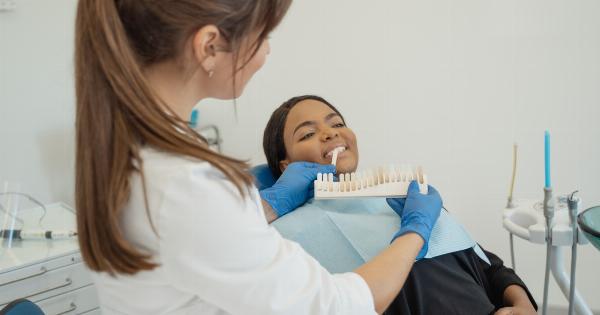Easy bruising can be a cause for concern, especially if it occurs frequently or without any obvious reason. While bruising is a common occurrence, there are several underlying factors that can contribute to excessive or unexplained bruising.
In this article, we will delve into the causes, risk factors, and treatment options for easy bruising.
Understanding bruising
Bruising, also known as a contusion, is the result of blood vessels beneath the skin breaking due to trauma or injury. When blood vessels rupture, blood leaks into the surrounding tissues, causing a discoloration that we commonly refer to as a bruise.
Most bruises are harmless and will heal on their own over time.
However, if you find that you bruise easily or experience frequent, large, or painful bruises, it is important to investigate the underlying factors that may be responsible.
Causes of easy bruising
There are several potential causes for easy bruising:.
1. Aging and thinning skin
As we age, our skin becomes thinner and more delicate. This makes the blood vessels closer to the surface of our skin more susceptible to damage, leading to easy bruising.
Hormonal changes during menopause can also contribute to thinning skin, further increasing the risk of bruising.
2. Medications and supplements
Some medications and supplements can interfere with the body’s ability to form blood clots, making it easier to bruise.
Common culprits include blood thinners, such as aspirin or warfarin, and over-the-counter nonsteroidal anti-inflammatory drugs (NSAIDs) like ibuprofen.
3. Vitamin deficiencies
Deficiencies in certain vitamins, particularly vitamin K and C, can impair the body’s ability to form blood clots and maintain the integrity of blood vessels. A lack of these essential vitamins can make bruising more frequent and severe.
4. Blood disorders
Some blood disorders, such as hemophilia or von Willebrand disease, can interfere with the body’s ability to clot blood properly. This can result in excessive bruising, even from minor injuries.
5. Sun exposure
Excessive sun exposure can weaken the skin and blood vessels, making them more prone to bruising. Protecting your skin with sunscreen and limiting sun exposure can help prevent bruising caused by sun damage.
6. Certain medical conditions
Underlying medical conditions, such as liver disease, kidney disease, or leukemia, can affect the body’s clotting ability and contribute to easy bruising.
If you notice unexplained bruising along with other concerning symptoms, it is important to consult a healthcare professional.
7. Genetics
Genetics can also play a role in easy bruising. Some individuals may be genetically predisposed to having thinner or more fragile blood vessels, making them more susceptible to bruising.
Risk factors for easy bruising
While anyone can experience easy bruising, certain factors may increase the likelihood:.
1. Age
As mentioned earlier, aging is associated with thinner skin and more fragile blood vessels, making older adults more prone to easy bruising.
2. Gender
Women tend to bruise more easily than men, partly due to hormonal fluctuations during their menstrual cycle and menopause.
3. Medications
Certain medications and supplements, as discussed previously, can increase the risk of bruising.
4. Chronic sun exposure
Regular and excessive sun exposure can weaken the skin, increasing the likelihood of bruising.
5. Family history
If your family members have a history of easy bruising, there is a higher chance that you may also experience the same issue.
Treating and preventing easy bruising
While easy bruising can be concerning, there are steps you can take to manage and prevent its occurrence:.
1. Protect your skin
Wearing protective clothing and sunscreen can help safeguard your skin against damage from the sun and reduce the risk of bruising.
2. Monitor medications
If you are taking medications or supplements, talk to your healthcare provider about any potential side effects, including increased bruising. They may suggest alternatives or adjustments to your dosage.
3. Ensure a balanced diet
Include foods rich in vitamins K and C in your diet. Leafy greens, citrus fruits, berries, and bell peppers can help enhance blood clotting and strengthen blood vessels.
4. Seek medical advice
If you are concerned about your easy bruising or notice any other unusual symptoms, consult with a healthcare professional. They can perform tests to determine if there are any underlying medical conditions contributing to your bruising.
Conclusion
Easy bruising can have various causes, ranging from natural aging processes to underlying medical conditions. Understanding the factors that contribute to easy bruising is essential for appropriate management and prevention.
If you are worried about your easy bruising, it is always advisable to seek medical advice to determine any underlying issues and receive the necessary treatment.




























